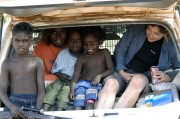
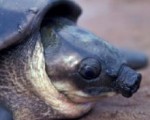
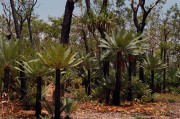
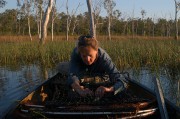

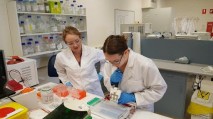
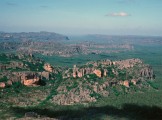
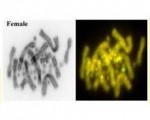
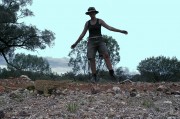
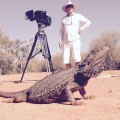
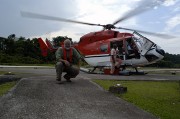
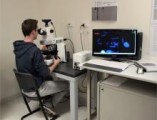


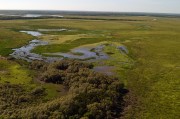
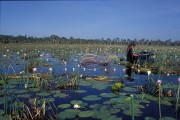
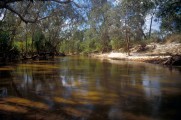
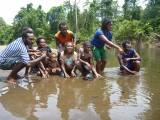
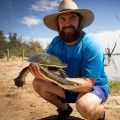

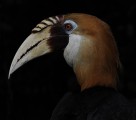
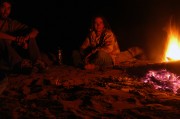
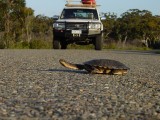

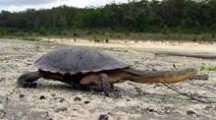

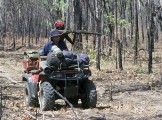
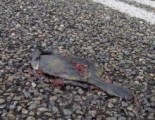
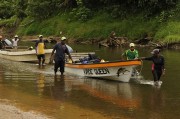

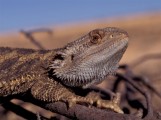
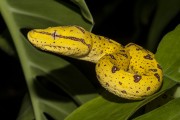
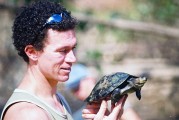

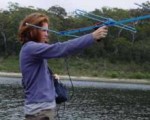


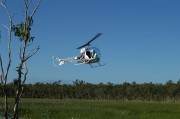

dartR -- R Package for SNP analysis
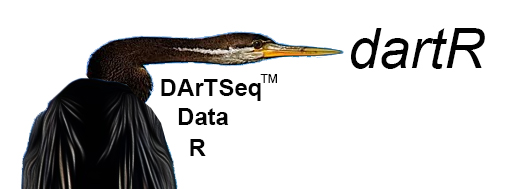 Bernd Gruber, Luis Mijangos, Carlo Pacioni, Diana Robledo Ruiz, Olly Berry and Arthur Georges
Bernd Gruber, Luis Mijangos, Carlo Pacioni, Diana Robledo Ruiz, Olly Berry and Arthur Georges
Package {dartR} is an R package for (a) loading DArT™ SNP and SilicoDArT data generated from the commercial service provided by Diversity Arrays Technology Pty Ltd or other sources (b) applying filters to those data based on locus metadata such as call rate, information content or reproducibility; (c) assigning individuals to populations and selecting subsets of individuals or populations; (d) visualization using Principal Coordinates Analysis (PCoA); and (e) providing a conduit to a range of standard data formats and R packages for analysis.
In most cases, the scripts in {dartR} are simple wrappers for scripts included in other already available packages, to provide transparent access to these packages for analyzing DArT data, and to provide some enhanced output diagnostics. Relatively few scripts provide novel analyses. We make no apologies for this, as the objective of {dartR} is to provide fundamental tools for accessing and manipulating DArT datafiles in preparation for analysis by the vast suite of packages available in R through the CRAN repository.
A summary of the capabilities of {dartR} is as follows:
- Intelligent interpretation and input of DArT Pty Ltd comma-delimited files to a compact genlight form of the R {adegenet} package.
- Filtering loci and individuals on criteria drawn from the DArT locus metrics (such as repAvg, AvgPIC) or on computed statistics (such as call rate, minor allele frequency or read depth).
- Relabelling individuals and recoding populations into new aggregations, and deleting selected individuals or populations.
- Visualization using Principal Components Analysis (PCA), Principal Coordinates Analysis (PCoA) and other visual tools.
- Conversion of data to other R packages (e.g. NewHybrids), to other {adegenet} objects (e.g. genind), and to standard data formats (e.g. fastA).
- Some specific analyses not available elsewhere (e.g. fixed difference analysis, assignment analysis).
Installing dartR
CRAN version
install.packages("devtools")
install.packages("BiocManager")
BiocManager::install("SNPRelate")
install.packages("dartRverse")
Latest stable version (github)
install.packages("devtools")
library(devtools)
dartRverse_install(package = "dartR.base", rep = "github", branch = "dev")
library(dartRverse)
Help
A Q&A forum called dartR has been established on Google Groups to assist with issues as they arise. You are welcome to join.
Tutorials
- Tutorial 1: RStudio Refresher
- Tutorial_2_dartR_Installation.pdf
- Tutorial 3: Data Input and Data Structures (DArT)
- Tutorial 4: Data Manipulation
- Tutorial 5: Basic Filtering
- Tutorial: Population Assignment using dartR
Technical Notes
- Tech Note: For the dartR Developer
- Tech Note: Genetic Distances and their Visualization
- TechNote: Fixed Difference Analysis
Sample Data Files
dartR contains a number of small sample files (e.g. testset.gl), but in addition, you might wish to access the following files.
- Sample csv file in 2row format as supplied by Diversity Arrays Technology PL (DArT)
- Sample csv file in 1row format as supplied by DArT
- Sample csv file containing SilicoDArT data (presence-absence) as supplied by DArT
- Sample file summarizing the service provided by DArT including explanation of locus metadata
- Sample csv file to associate individual/sample/specimen metadata to the genotypes
- Sample data file on turtles for worked examples on population assignment
- Sample data file on Pacific blue-eye for worked example on selecting a SNP panen for population assignment
They can be downloaded into your working directory for use with the tutorials.
Reading
The package dartR was announced in Molecular Ecology Resources; Version 2 announcement also in Molecular Ecology Resources.
